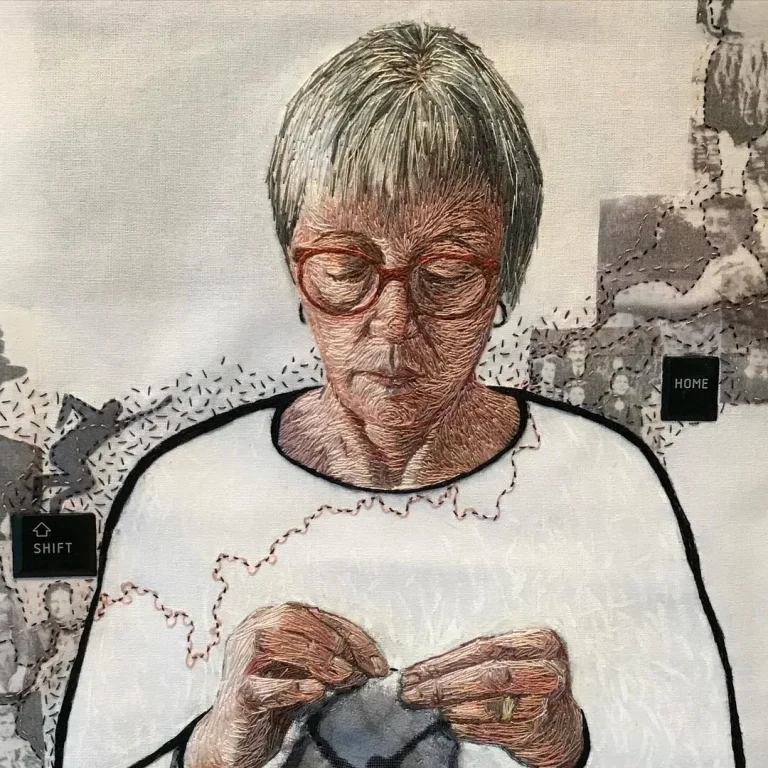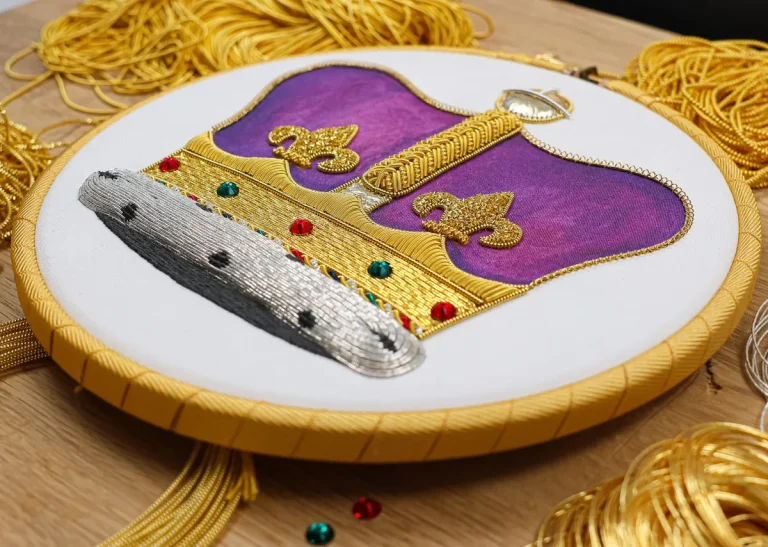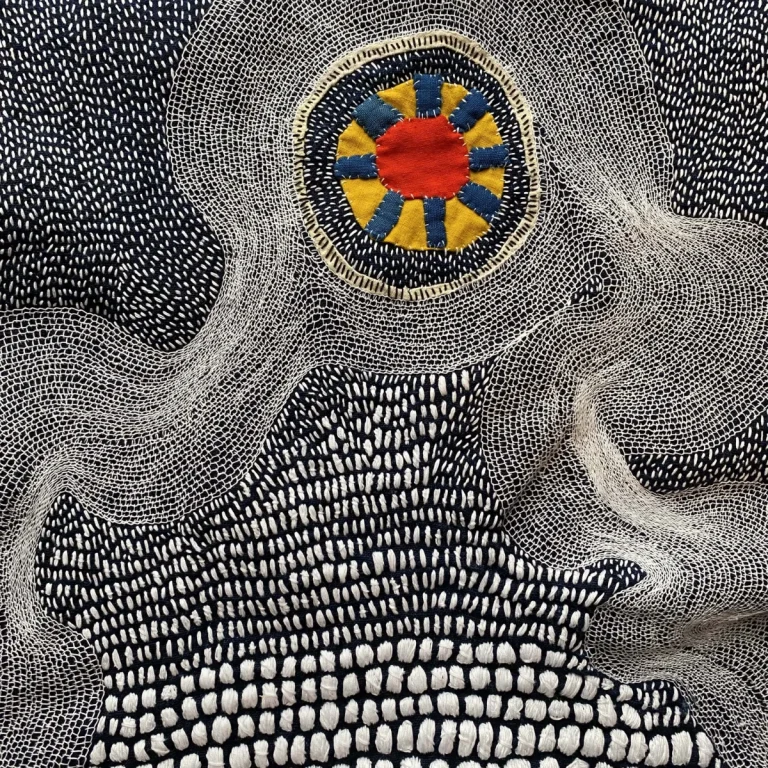Daniel(la) Jonasson joined us back in 2020 to study hand embroidery Skill Stage 2. Tuition was paid for by us after winning a place through our Joan Harrison Bursary. Having witnessed both grandmothers doing needlework, Daniel had always felt an affinity for textiles. However, it was only at the age of 35 that Daniel got ‘hooked on embroidery’. They told us that the course provided an excellent opportunity to try new techniques, develop their passion and they even plan to open a store. This is his #MyStitchJourney.

“The most helpful thing I learnt through the course was to be open to new ideas and really plan my work. I think the planning and sampling stage is something most people think probably is good but also unnecessary. Well, turns out it’s really good and also necessary for a good result.”
Daniel(la) Jonasson
I enrolled in Hand embroidery Skill stage 2 in summer 2020. I actually never heard of School of Stitched Textiles until just a few weeks before the bursary application date. 2020 was as 2020 was and I wanted to expand on my embroidery knowledge. I started to look for online courses and I couldn’t really find any in Sweden that I found interesting. SofST looked good, and so, I applied.
As a child I remember looking at my grandmothers needlework and really liking the look and feel. I think it was there I got my first fascination with textiles. Unfortunately, none of them where alive when I got my interest back about thirty years later. Luckily my mom is incredibly creative so that part never left me.
In primary school between the age of 7-11 we had both wood and textiles classes. Due to some clerical error (or whatever), I didn’t get put in textiles from the year 12-15 and had to make pretty bad butter knifes and such for the rest of primary school. This caused me to drift away from everything textile and instead putting all my energy into music. It took me until I was 35 before I picked up a needle again. But since then, I never put it down – I got hooked on embroidery. When I applied for my bursary, I had embroidered for less than three years, but in that time I spent most of my awake time embroidering.
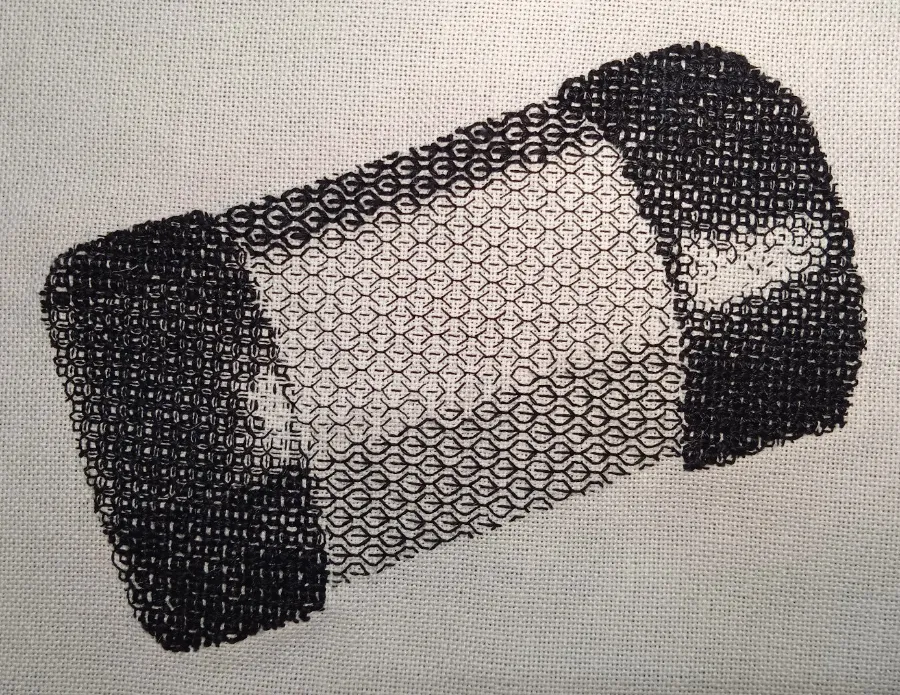
Studying Hand Embroidery
The most helpful thing I learnt through the course was to be open to new ideas and really plan my work. I think the planning and sampling stage is something most people think probably is good but also unnecessary. Well, turns out it’s really good and also necessary for a good result. I almost never did it before and just thought that I’ll learn by doing. And it shows.
Examples of bad planning was my hardanger work. I love the finished piece and I’m really proud of it, but it took way longer that it could have and I used a lot more thread than necessary. I actually thought that it locked really boring to do. But now, when I’ve tried it, it’s a skill that I love having and I see myself making more hardanger pieces in the future.
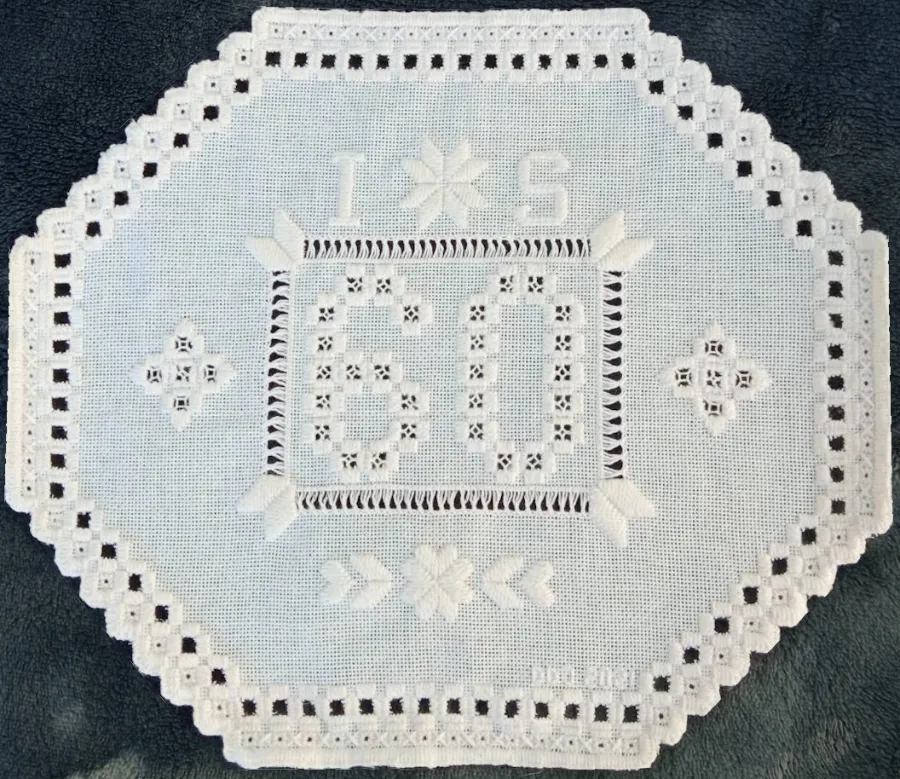
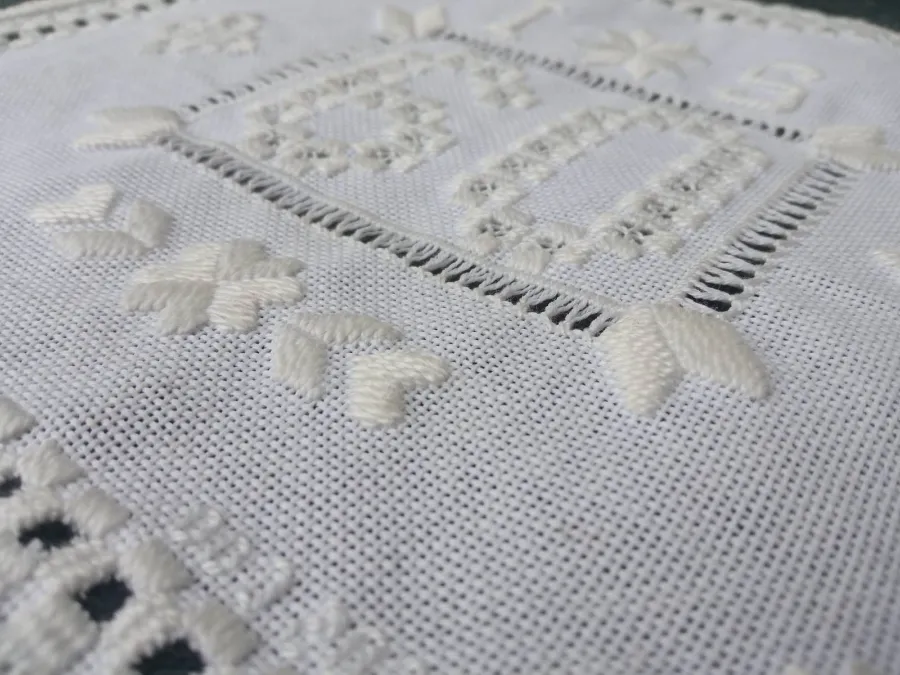
Future Plans
For the future I plan to open a store for my own pieces and keep on taking orders locally – at least for now. Lately I’ve been feeling that I made all my best work as gifts for the people I love. Of course, nothing wrong with that, but I need to make things just for me. As I grow as an embroiderer, I need to make sure to take time to create just for me.
I applied for the bursary as there was no chance for me to afford the course otherwise. For those that can afford it, it will make you a much better embroiderer, and I would go for it. Even though in the middle of the course I had some health problems I never had any problems with extending the course. It’s a great course and allows for plenty of time for other commitments. So you can still have a life outside of studying. If you want to broaden your horizons and be introduced to new ideas and try new things, then it is a great course. As mentioned above I got to try things I previously thought would be quite boring, and never would have tried unless this course made me.
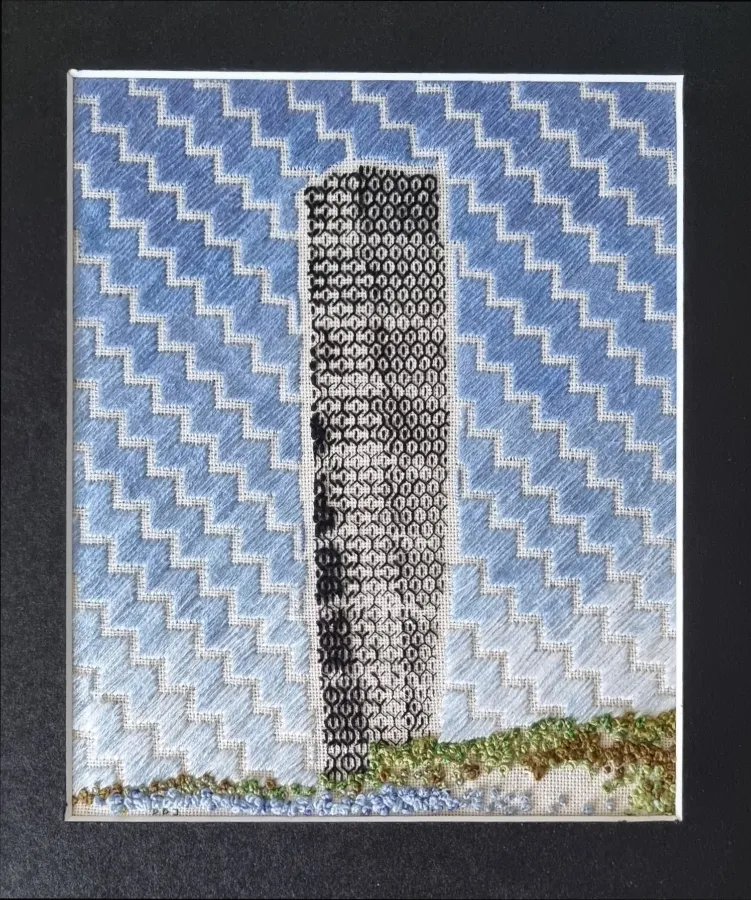
My advice to new students is the one lesson I felt I learned the most throughout the course. Be open to new ideas! I guarantee that crewel work or blackwork isn’t as boring as you think. My boring technique was hardanger, but then I tried it, and now it’s something I think I’ll be doing a lot more of in the future.
We’re currently accepting bursary applications. If you want to study a Skill Stage Textile Course, then please apply before the 8th October 2023.









